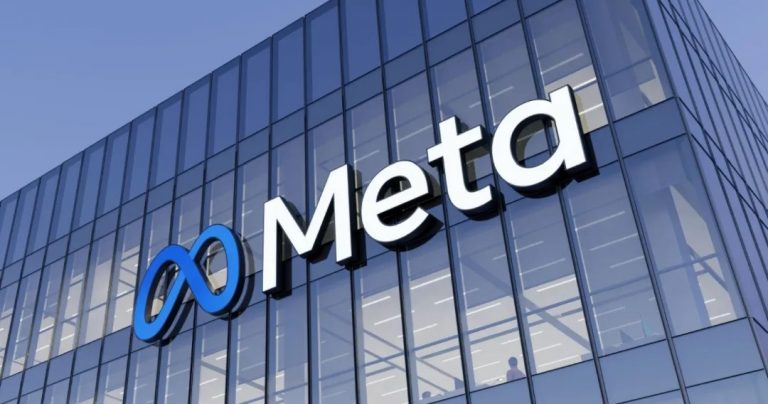
Meta CEO Mark Zuckerberg is doubling down on the artificial intelligence arms race, announcing the formation of Meta Superintelligence Labs, a sweeping reorganization that will unite all of Meta’s AI projects under one strategic roof.
The move signals Zuckerberg’s most aggressive play yet in the pursuit of AI superintelligence—a form of AI that surpasses human cognitive ability—putting Meta in direct competition with rivals like OpenAI, Google DeepMind, Microsoft, and Nvidia.
The new AI unit will be helmed by Alexandr Wang, former CEO of Scale AI, a data labeling startup Meta recently acquired through a $14.3 billion investment. Wang now serves as Meta’s Chief AI Officer. Alongside him is Nat Friedman, the former CEO of GitHub, who will oversee Meta’s AI product strategy and applied research. The team also includes Daniel Gross, Friedman’s longtime business partner and the co-founder of Safe Superintelligence, a high-profile startup that rebuffed Meta’s acquisition offer earlier this year.
Register for Tekedia Mini-MBA edition 19 (Feb 9 – May 2, 2026).
Register for Tekedia AI in Business Masterclass.
Join Tekedia Capital Syndicate and co-invest in great global startups.
Register for Tekedia AI Lab.
Zuckerberg’s vision is not just to integrate AI more deeply into Meta’s services, but to position the company at the forefront of the AI superintelligence race—an ambition with transformative implications for everything from social media to enterprise solutions and beyond.
Meta’s $14.3 billion investment in Scale AI wasn’t just about data infrastructure—it was about talent. The deal gave Meta direct access to Wang and his team, alongside other elite AI talent that has been defecting from competing labs. The company has quietly poached 11 AI researchers from across the field, including from OpenAI, Google DeepMind, and Anthropic. Notable among the hires are Pei Sun, a principal researcher from DeepMind, and Joel Pobar, an engineer from Anthropic.
The hiring spree has sent ripples through Silicon Valley. OpenAI CEO Sam Altman recently remarked that Meta had been offering up to $100 million in signing bonuses in its bid to lure top talent—an eye-popping figure that underscores just how high the stakes have become.
Meta Shares Soar on AI Optimism
News of Meta’s Superintelligence Labs sent its stock soaring to an all-time high of $747.90 during Monday’s trading session. The company joins Microsoft and Nvidia as the only major tech firms to hit fresh records recently, a sign that investors are bullish on Meta’s pivot toward AI as the next great revenue frontier.
This surge in confidence comes just months after Meta announced sweeping job cuts, laying off 5% of its workforce and labeling them “low performers.” Since then, Zuckerberg has refocused the company around “efficiency and innovation,” with artificial intelligence taking center stage in both areas.
While Meta has been known primarily for its social media platforms—Facebook, Instagram, and WhatsApp—Zuckerberg’s ambitions for AI are anything but incremental. The company has already launched the LLaMA 4 model and has ambitions for an even more powerful LLaMA 5 later this year, signaling an ongoing push toward foundation models that can rival GPT-4 or Gemini.
But Meta’s pivot also signals a deeper philosophical and strategic shift: away from consumer product iteration and toward AGI (Artificial General Intelligence) and superintelligence, concepts that have long been the domain of research outfits like OpenAI and DeepMind.
Meta’s CTO Andrew Bosworth described the current talent war in AI as “incredible and kind of unprecedented in my 20-year career as a technology executive.” Speaking to CNBC on June 20, Bosworth emphasized that the company’s aggressive hiring is necessary to stay competitive in a field that is rapidly evolving and increasingly defined by breakthrough research.
However, Meta’s ambitions have not been a walk in the park. Earlier this year, the company made a failed attempt to acquire Safe Superintelligence, the startup co-founded by Ilya Sutskever, OpenAI’s former chief scientist. Despite reportedly offering generous terms, Meta’s advances were rebuffed, suggesting that not every AI leader is aligned with Zuckerberg’s vision or his approach to consolidation.
But with Wang and Friedman now firmly entrenched at Meta, the company is positioning itself as one of the most formidable players in the AI field. The creation of Superintelligence Labs marks a new phase—one in which Meta is no longer simply reacting to AI trends but actively trying to shape them.
The focus on superintelligence opens a new chapter in the tech sector’s AI race—one not just defined by faster chatbots or smarter image generators, but by the race to build machines that outthink humans entirely.
While that future is still speculative, Zuckerberg’s strategy makes one thing clear: Meta no longer sees itself merely as a social media company after the failure of the metaverse. It wants to be an AI powerhouse, a global player in defining what artificial intelligence becomes, how it is governed, and who benefits from it.
With billions of dollars, dozens of top researchers, and now an organizational structure aimed at delivering that goal, Meta Superintelligence Labs could be Zuckerberg’s boldest moonshot yet.



